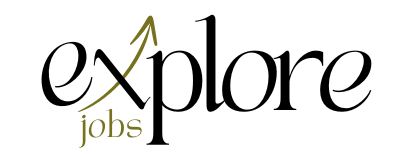Job interviews can be a nerve-wracking experience, but with the right preparation and mindset, you can turn them into an opportunity to shine. Whether it’s your first interview or you’re a seasoned professional, nailing the interview process is key to landing your desired job. Here are essential tips for preparing for and conducting a successful job interview.
1. Research the Company and the Role
Thorough research is the foundation of any successful interview. It demonstrates your interest in the company and helps you tailor your responses to align with their goals and values.
- Research Tips:
- Visit the company’s website to understand their mission, values, and recent accomplishments.
- Look up recent news articles, press releases, or industry insights related to the company.
- Review the job description carefully and identify the key skills and qualifications required for the role.
- Explore the company’s social media presence to gain insights into their culture and priorities.
- Use LinkedIn to find out more about the company’s leadership team and other employees, as well as recent hires in similar positions.
Example Preparation: If you’re interviewing for a marketing role at a tech company, familiarize yourself with their product lines, recent marketing campaigns, and how they position themselves in the competitive landscape. This knowledge will help you connect your skills with their specific needs.
2. Understand the Interview Format
Interviews can take many forms, from traditional one-on-one interviews to panel interviews or even virtual assessments. Knowing the format ahead of time allows you to prepare more effectively.
- Common Formats Include:
- One-on-One Interview: The most common type, where you meet with a single interviewer.
- Panel Interview: You’ll meet with multiple interviewers at once. Be sure to make eye contact and engage with all panel members.
- Phone or Video Interview: Often used for the initial interview stage. Ensure you have a quiet environment and a stable internet connection for video interviews.
- Group Interview: Multiple candidates are interviewed together. In this setting, balance contributing to the conversation while respecting others.
Before the interview, ask the recruiter about the format and who you will be speaking with. This will help you mentally prepare and anticipate how the conversation will flow.
3. Practice Common Interview Questions
While every interview is unique, certain questions are frequently asked across industries. Practicing responses to these common questions will help you feel more confident and articulate during the interview.
- Common Interview Questions:
- Tell me about yourself. (Focus on your professional background and how it relates to the role.)
- Why do you want to work here? (Showcase your knowledge of the company and why you’re a good fit.)
- What are your strengths and weaknesses? (Highlight strengths relevant to the role and discuss how you’re working to improve your weaknesses.)
- Can you describe a challenging situation you’ve faced at work and how you handled it? (Use the STAR method: Situation, Task, Action, and Result.)
- Where do you see yourself in five years? (Demonstrate ambition, but align it with the company’s opportunities.)
While you don’t want to memorize answers, practicing will help you frame your thoughts and avoid rambling.
4. Prepare Your Own Questions
Interviews are a two-way street. Having thoughtful questions prepared shows that you’re genuinely interested in the role and have done your research.
- Examples of Good Questions:
- What are the company’s short- and long-term goals, and how does this position contribute to them?
- Can you describe the team I would be working with?
- What does success look like in this role in the first six months to a year?
- What are the biggest challenges facing the company right now?
- Can you tell me more about the company culture and opportunities for professional development?
These questions not only demonstrate your interest but also help you determine if the company is the right fit for you.
5. Dress Appropriately
Your appearance plays a significant role in making a positive first impression. Dressing appropriately shows professionalism and respect for the company’s culture.
- Dress Code Tips:
- For most corporate or professional settings, business formal or business casual attire is recommended. A suit, blazer, or dress pants paired with a button-down shirt or blouse works well.
- For industries like tech or creative fields, business casual may be more appropriate, but it’s still important to look polished and neat.
- Research the company’s dress code ahead of time. For video interviews, ensure your background is tidy and free of distractions.
6. Use the STAR Method for Behavioral Questions
Behavioral interview questions are designed to assess how you’ve handled situations in the past. A common approach to answering these questions is the STAR method, which helps you provide clear and concise responses.
- STAR Method:
- S (Situation): Describe the context or background of the situation.
- T (Task): Explain the task or challenge you were facing.
- A (Action): Discuss the actions you took to address the challenge.
- R (Result): Share the outcome or results of your actions.
Example Question: “Can you give an example of a time when you led a project?”
- Situation: “In my previous role, I was tasked with leading a marketing campaign for a new product launch.”
- Task: “The goal was to increase brand awareness and generate leads within a three-month timeline.”
- Action: “I coordinated a team of five, developed a content strategy, and implemented social media advertising.”
- Result: “As a result, we saw a 25% increase in leads and a 15% boost in website traffic during the campaign.”
7. Be Aware of Body Language
Non-verbal communication is just as important as what you say during an interview. Positive body language can convey confidence and enthusiasm, while negative body language may suggest disinterest or discomfort.
- Tips for Positive Body Language:
- Maintain eye contact with the interviewer(s) to show engagement.
- Sit up straight and lean slightly forward to demonstrate interest.
- Avoid crossing your arms, as this can appear defensive.
- Smile and nod when appropriate to show that you’re actively listening.
8. Show Enthusiasm and Positivity
Employers want to hire people who are excited about the role and will bring a positive attitude to the workplace. Enthusiasm during an interview can make you stand out as a strong candidate.
- Ways to Show Enthusiasm:
- Express genuine interest in the company’s mission and values.
- Discuss what excites you about the role and how you can contribute.
- Avoid speaking negatively about previous employers or experiences; instead, focus on what you learned.
9. Be Ready to Discuss Salary and Benefits
Salary discussions can be tricky, but it’s important to be prepared in case the topic comes up. Do your research beforehand to understand the salary range for the position and be ready to discuss your expectations.
- Salary Discussion Tips:
- If asked about salary expectations, give a range based on your research (e.g., “Based on my experience and the industry standard, I’m looking for a salary in the range of $60,000–$70,000”).
- If the salary isn’t discussed, don’t bring it up in the first interview unless prompted by the interviewer.
- Be open to discussing benefits like healthcare, vacation time, and opportunities for professional development.
10. Follow Up After the Interview
Following up after the interview is a great way to leave a lasting positive impression. Sending a thank-you note shows professionalism and appreciation for the interviewer’s time.
- Follow-Up Tips:
- Send a thank-you email within 24 hours of the interview.
- In your message, express gratitude for the opportunity to interview, reiterate your interest in the role, and mention something specific from the conversation.
- Keep the tone positive and professional, and offer to provide any additional information if needed.
Example Thank-You Note: “Thank you for taking the time to meet with me today. I enjoyed learning more about XYZ Company’s innovative approach to digital marketing and how this role can contribute to your continued growth. I’m excited about the opportunity to bring my skills in content strategy and social media to your team. Please don’t hesitate to reach out if you need any further information.”
Final Thoughts
Acing your next interview comes down to preparation, confidence, and clear communication. By researching the company, practicing your answers, and demonstrating enthusiasm, you can set yourself apart from other candidates. Remember, interviews are not just about showing your qualifications—they’re an opportunity to demonstrate your fit within the company and convince the employer that you’re the ideal candidate for the role.




